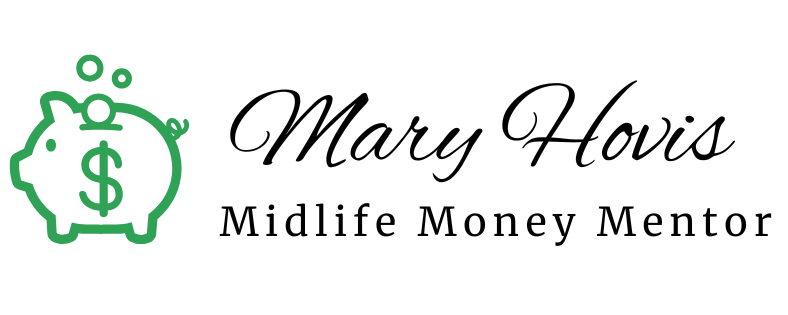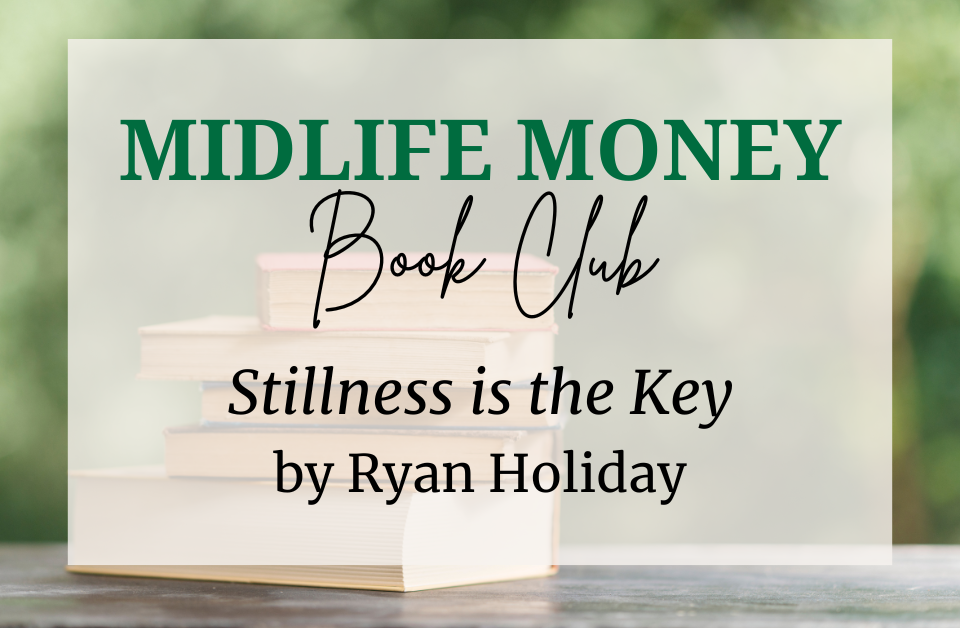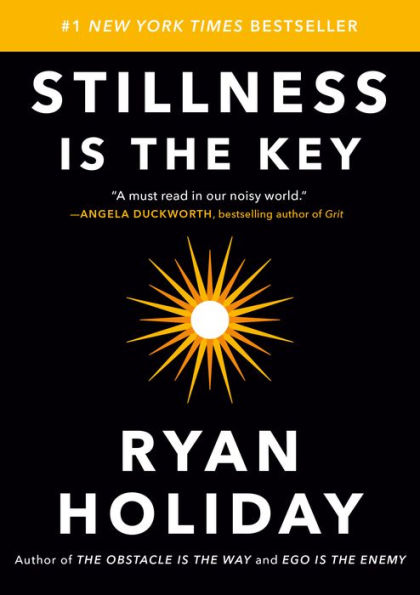Are you overwhelmed by financial decisions in midlife? Do life’s constant demands leave you feeling reactive and unfocused? What if clarity lies in stillness? In Stillness Is the Key, Ryan Holiday teaches us how to cultivate a calm and focused mind, enabling us to make better choices in our lives. This guidance is particularly relevant for our financial journeys. By utilizing principles of Stoicism, the book helps readers understand how to achieve stillness and clarity.
At first, the concepts felt foreign to me. Confession: I almost didn’t finish it. This isn’t a book I would typically choose, but it was assigned reading for a program I’m in. I struggled through it, and my only motivation to continue was to share my experience with the class. However, I’m grateful I persevered because it offered me a fresh perspective on my midlife money goals.
The Power of Stillness for Financial Clarity
As midlife women, we often feel like we’re constantly reacting to life’s demands. This reactive state can lead to impulsive financial decisions, avoidance of difficult money conversations, and getting caught up in the comparison game. As Ryan Holiday states, “The world is noisy, and we need to create our own quiet.” Finding that quiet is essential for navigating our financial lives.
Stillness Is the Key offers a refreshing perspective. It argues that true power and success come from inner peace and a calm, focused mind. As Holiday emphasizes, “In stillness, we find clarity.” This clarity is crucial for:
– Making Wise Financial Decisions: When we’re calm, we can think clearly, assess risks rationally, and make informed choices about investing, saving, and spending. For instance, instead of making impulsive purchases, we can take a moment to reflect on whether we truly need an item. You can do this! Holiday promises, “The ability to be still is a skill that can be learned.”
– Managing Stress and Emotional Spending: Stress often triggers overspending. Stillness allows us to quiet the mental chatter that can so easily fill our minds with demands and worries. As Holiday points out, “We must take the time to be still, to reflect, to think, to meditate.” I’ve learned to pause, take a few deep breaths, and reassess whether I really need that “treat yourself” purchase after a long day
– Staying Focused on Long-Term Goals: Stillness helps us remain grounded and focused on our long-term goals, even when faced with setbacks. As Ryan Holiday states, “The key to success is to focus on goals, not obstacles.” Embracing stillness allows us to keep our eyes on what truly matters, guiding our actions toward achieving our financial aspirations.
– Building Resilience: Midlife can bring unexpected financial challenges. Stillness equips us to navigate these challenges with grace. For example, instead of avoiding difficult money conversations, we can approach them with a calm and clear mind. As Holiday reminds us, “We can’t control our circumstances, but we can control our responses.”
Navigating Life’s Challenges with Stoicism and Stillness
So, where does this concept of stillness come from? Ryan Holiday draws heavily on Stoicism, an ancient Greek philosophy emphasizing virtue, reason, and living according to nature. Stoicism provides a practical framework for navigating life’s challenges.
Stoicism’s concepts, which emphasize rational thinking, can initially seem foreign because our lives as women have been shaped by societal expectations that prioritize emotions and feelings. You might perceive Stoicism as overly harsh or unfeeling, but it actually focuses on gaining control over your reactions rather than being emotionless.
From a young age, we’re bombarded with messages suggesting we can achieve anything if we work hard enough, plan meticulously, and exert enough effort. These messages create the impression that we have complete control over our destinies. Advertisements promise that certain products or services will bring us happiness, success, or even control over how others perceive us. Social media often reinforces this illusion by showcasing curated, seemingly perfect lives, suggesting that everyone else has it all figured out. The underlying message is often that we are to blame if our lives aren’t also perfect.
However, this relentless pursuit of perfection can lead to anxiety and dissatisfaction. We become so focused on achieving specific outcomes that we overlook the importance of enjoying the journey. This is where Stoicism offers a valuable perspective. Holiday encourages us to shift our focus from merely achieving our goals to appreciating the process of growth itself.
The key realization here is understanding what we can control: our thoughts, judgments, and reactions. Once we recognize that our internal responses are within our power, we begin to see how much society tries to control us through socialization and marketing. This awareness empowers us to take back our power and make conscious choices that align with our true values and desires.
In reality, life is full of uncertainties and factors beyond our control. We can’t control the economy, other people’s choices, or even our health with absolute certainty. A core tenet of Stoicism is the “dichotomy of control,” which encourages us to focus on what we can influence—our thoughts and actions—while accepting what we cannot. This realization reveals that much of our anxiety stems from trying to control the uncontrollable.
By acknowledging that we only have control over our internal responses, we can free ourselves from the burden of trying to control everything else. This shift in perspective allows us to focus our energy on what truly matters and accept what we cannot change with greater peace. As Holiday wisely notes, “The more we can be still, the more we can see what is important.” Embracing this stillness helps us navigate our financial lives and allows us to find joy in the process of growth and self-discovery.
To fully embrace the lessons of Stoicism, we must also consider how nurturing our mind, body, and spirit can enhance our journey toward financial clarity.
The Mind, Body, and Spirit Connection
Building on the principles of Stoicism, we must nurture our mind, body, and spirit to achieve true stillness. All three are important. In our fast-paced society, many of us have never been taught the significance of balance in our lives. We often prioritize work, responsibilities, and external expectations over our own well-being, leading to a disconnection from ourselves. As midlife women, we are waking up to find ourselves feeling overwhelmed, stressed, and out of sync.
Ryan Holiday emphasizes that by balancing these three aspects of ourselves, we can create a more harmonious existence that supports our financial and personal goals. Here are some ways to focus on each area:
– Mind: Holiday encourages journaling, meditation, and mindful reading to quiet the mental chatter. These practices are essential for clarifying our financial priorities and making sound decisions.
– Body: He stresses the importance of physical activity, sleep, and healthy eating. Taking care of our bodies provides the energy and focus needed to manage our finances effectively.
– Spirit: The Stoics realize there is something larger than ourselves that we need to connect with. Holiday says this can be nature, creativity, or acts of service. This connection fosters purpose and helps us stay grounded, preventing us from being swept away by financial anxieties. Stoicism also teaches that living a virtuous life is essential for fulfillment. Cultivating virtues such as wisdom, courage, justice, and temperance can guide our actions and decisions, allowing us to align our lives with our core values.
Conclusion: Embracing Your Journey
Reflecting on Stoicism’s insights and the connection between mind, body, and spirit, it becomes clear that our midlife journey is not just about financial success or societal expectations. It is about reclaiming our power, finding balance, and embracing the process of growth.
By recognizing what we can control—our thoughts, actions, and responses—we empower ourselves to create lives that resonate with our true values. This journey requires patience and self-compassion but ultimately leads to a more fulfilling and purposeful existence.
Personally, I’ve found that taking just 10 minutes each morning for prayer and journaling enhances my calm and focus throughout the day, leading to better financial choices. I’ve made mistakes in the past by spending impulsively, but I’m working on building new habits. My biggest lesson has been to stop berating myself for past financial choices. I can’t change them, so like Elsa, I need to “let it go” and focus on what I can control now.
In the words of Ryan Holiday, “The more we can be still, the more we can see what is important.” As you move forward, remember to embrace stillness, nurture all aspects of yourself, and enjoy the journey that lies ahead. Your path to clarity, balance, and empowerment is uniquely yours—embrace it fully.
Now is the time to take action. Reflect on the insights shared in this post and consider how you can integrate them into your daily life. What’s one small step you’ll take this week to incorporate stillness into your financial life? Share your ideas below! What is one struggle you have with your finances that you think stillness could help? Feel free to leave a comment and let me know.








